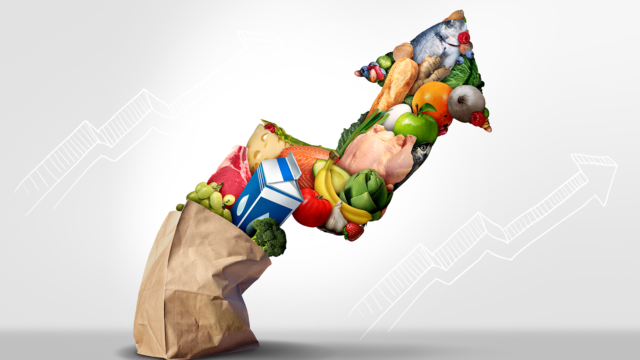How to navigate inflation and come out on top
The cost of living is rapidly rising. However, re-evaluating your financial strategy will help keep inflation, which is eating away at your finances, at bay.

The war between Ukraine and Russia has led to commodity supply chain disruption. This, combined with the COVID-19 pandemic, has been a swift one-two punch delivered to economies and citizens’ pockets globally. The interruption of the supply of commodities such as crude oil and crude palm oil, whose prices have skyrocketed, has led to a high cost of living, which is still rising. Inflation, which is fast eating away at your money, seems to be here to stay for a while. But to survive it and, hopefully, get away unscathed (mostly), here are ways you can re-evaluate your financial strategy.
1. Learn to Calculate Your Personal Inflation Rate
According to Martin Njuguna, a Team Leader at ICEA Lion who’s in charge of clients’ financial portfolios, knowing how to calculate your personal inflation rate will “help you know how it is directly affecting you. And by doing so, you’ll adjust your expenditure accordingly.” Prices for most household commodities have doubled, even tripled. Begin by subtracting this year’s monthly expenditure from last year’s. If, say, your monthly spending was KSh21,000, and this year it is KSh25,000, subtract that, then divide the difference by your monthly expenditure last year. Therefore, divide 4,000 by 21,000, and your inflation rate will be 19 percent. This helps contextualise why your money is not stretching as far as it used to. It also enables you to get rid of any unnecessary spending.
2. Budget Smartly
The base of any solid financial plan is a budget. Once you know where you stand, especially with your personal inflation rate, make a budget to help you stretch your money further. As you go through the budget with a fine-tooth comb, look for areas where you can save money – every single shilling saved matters. “Keep a close track of all daily, weekly and monthly expenditures. Reduce spending on certain unnecessary items or services, and mostly spend on needs as opposed to wants. For example, cancel or drastically reduce restaurant visits and takeout meals,” Njuguna advises. He adds that you need to compare prices of essential items in multiple outlets before making purchases and practice buying in bulk to benefit from discounts.
3. Tinkering with Your Investment Portfolio
Njuguna says you can tinker with your portfolio to a certain extent, as a prolonged high inflation rate may not meet one’s investment goals. “For example, you may opt for safer, guaranteed government treasury bills as opposed to equities.” However, whether you have invested in bonds, stocks or real estate, don’t liquefy everything just yet. Investing is a long-term plan – not a race. Inflation affects bonds more than stocks; therefore, you could reallocate a percentage of your portfolio from bonds to stocks. Also, diversify your investments globally. Look at global economies that do not rise and fall in tandem with local market indices, like Switzerland, Australia and Italy. With inflation as rampant as it is locally, bonds from foreign issuers can provide you with exposure to fixed income that might not drop in price.
4. Reduce Unnecessary Fees
You might blindly incur costs if you’re not one to read the fine print. For example, you might incur late payments or over-limit fees on your credit card. Your bank may be charging a fee every time you use your ATM card to withdraw money from your account. Also, look for options if your checking account charges you monthly minimum payments. Due to inflation, you might not afford to keep a minimum amount of money in your account.
5. Don’t Stop Saving
Times are hard now, and you might consider stopping saving – don’t. If you have a savings goal, re-evaluate it and elongate it further by a few months. Saving, after all, is a marathon and not a sprint. “One should continue saving and commit more than usual to maintain the investment objectives,” Njuguna urges. Have a cash reserve of between three to six months – these are savings for your needs, not wants. Unemployment is devastating, and emergencies crop up night and day. The emergency savings plan comes in handy during such times.
